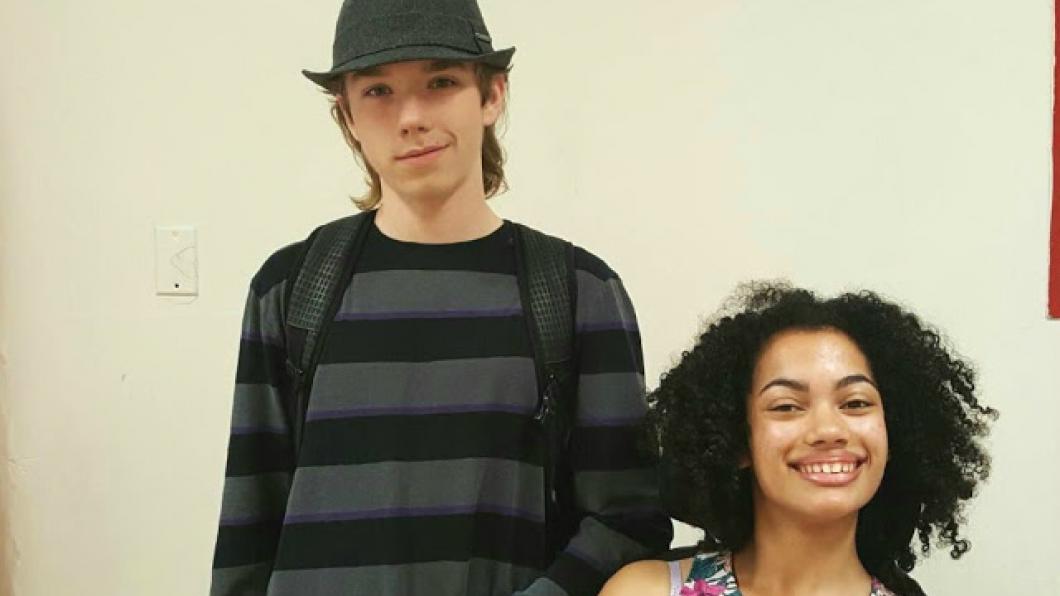
'We don't want to be held on leashes'
By Jadine Baldwin
As a 17-year-old girl who has cerebral palsy, every day I encounter teens with a variety of abilities and disabilities. The Limited versus the Limitless!
Society tells people like me that we’re limited because of our disabilities—mental or physical—and that because of what we’re lacking, we’ll never be able to live a full life. This can be disheartening for parents and guardians to talk about and process with their disabled children. For this reason, parents are afraid and unsure about how to support us when we become teens and even adults. They’re scared to let us “be free,” because all along they’ve been told to keep us close, or the world will eat us alive.
Parents don’t understand that just because we’re made differently from “normal” teens, doesn’t mean that we don’t want to experience life like normal teens. We want to go to the movies with our friends alone, we want to stay home alone, and we want to try the things we're constantly told we can’t do. We don’t want to be held on leashes. It doesn’t matter if we’re verbal or non-verbal, we can understand what it means to live a good, quality life.
We just need our parents and the ones we love to help us along the way.
I have a very close friend who’s my age and autistic. He’s super smart and funny and I feel so alive when he's in the picture. He and I have known each other since Grade 9. He understands me, and I understand him (like no one else does, as he says). Even though his parents have known him for 17 years, he tells me that it still feels as if they’re “newbies” sometimes. They know that he needs a simple and easy-to-understand structure in order to grasp this complicated world. Yet they still confuse him by putting too many minor details into a task or question, and that throws him off.
Sometimes, people don’t realize that simple is how everything begins. Simple love, simple feelings and then you gradually can start to think deeper. My friend’s parents are smart, my only advice to them is: Give your son a simple tree and he can make it grow into extraordinary things, all on his own. Just give him time and your support to let him know that you're ready to see the world through his eyes.
“I want to talk to you, Daddy...but the words won’t come.” That’s what it feels like to be a non-verbal child. Because they can’t voice their own opinion, you guys as parents have to speak for them. I’ve met so many parents with non-verbal children and they treat their kids so well—like actual human beings—not robots.
Although it’s great that you’re treating your child like a human being, I find it a little silly that in trying to make your child seem more than what society sees them as, you, in turn, make them feel less by focusing too much on society and not on them.
It’s hard to speak for your child if you don’t know how to stop talking and listen to them, instead. Parents, your children need to know that you are hearing them as much as you are fighting for them. Just listen!
For parents of children who don’t have a reliable communication aid, talk to other parents, and see what worked for their child, to give you motivation and inspiration. Don’t give up.
Being a child with cerebral palsy is great—if you don’t have parents that smother you! My Mom does exactly that! I bet every teen who has CP has experienced this in one way or another. Our parents think that we're little and can’t handle the “big” because that’s what many doctors have told them. So, they don’t leave you home alone for more than five minutes (especially if you’re in a wheelchair).
Some parents won’t let you go to sleep-away camps with other disabled kids until you’re 17 (my Mom)! They always think that people are out to get you. We love them more than life itself, but it gets so crazy sometimes. I always think, Mom, my friends are not murderers and if they were, I’d be dead already.
In my opinion, our parents forget how tough we are because sometimes we don’t look it. If your child has CP, please do not smother. Please don’t tell us that we can’t handle life, because we were built for it. Please let us live (a little more).
Dear parents of disabled teens: We appreciate you and love you! We aren’t telling you that you can’t worry about us. You’re supposed to. We’re simply saying that you need to support us with what our futures hold, not hold us back. We need to soar, but that doesn’t mean that we won’t come back home. We may need help along the way, but we need to explore. That’s what life is meant for, isn’t it?
.jpg)